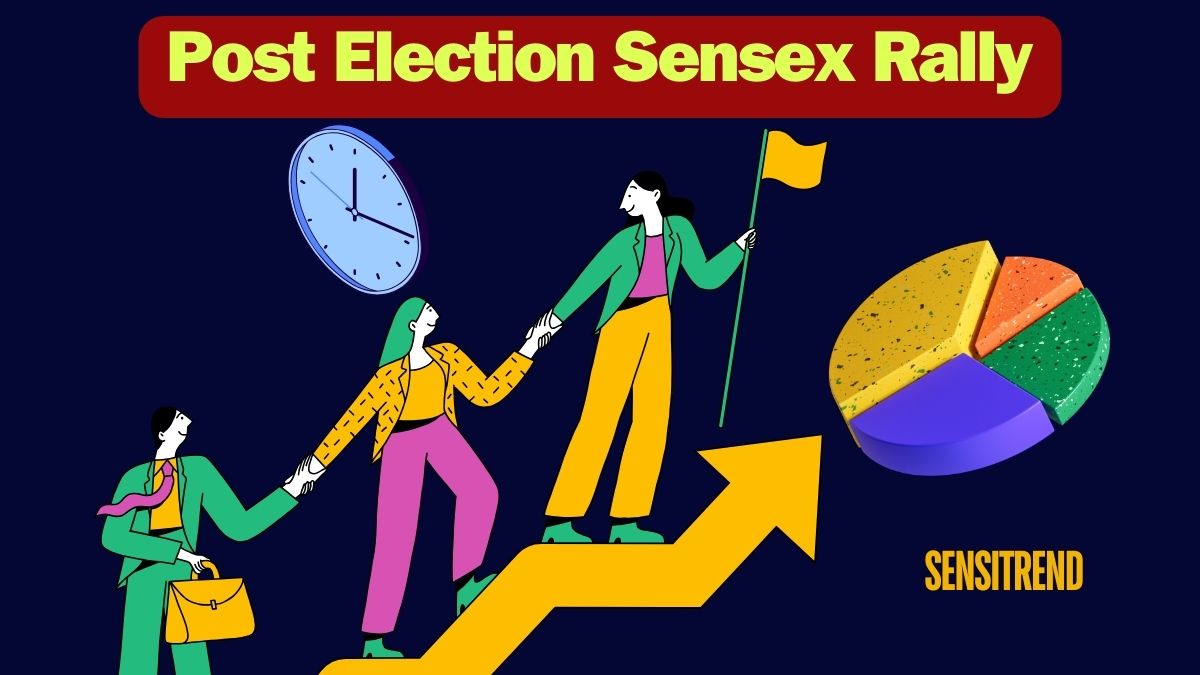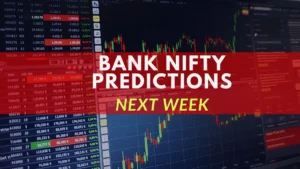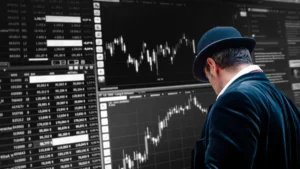The Lok Sabha election is an exciting event in India, not just politically but also for the stock market. Prime Minister Narendra Modi predicts a big Sensex rally after the Lok Sabha Election 2024 results, which could push the Indian benchmark indices to new heights.
Here’s how traders can be ready for this potential market surge in a simple and easy-to-understand way.
What was Prime Minister Narendra Modi’s Prediction?
Prime Minister Modi believes the market will hit new highs shortly after the election results are announced on June 4. He mentioned that the Sensex has grown from 25,000 to 75,000, showing the strength of India’s economy. While this is good news, traders should be careful and plan wisely.
If everything goes as Indian Prime Minister Narendra Modi predicts, the Indian stock market indices will break all records. Investors and traders can expect a rally in Sensex, Nifty, and Bank Nifty after the Lok Sabha election results on June 4.
Why is Volatility Expected?
The stock market is likely to be very volatile around the election. The India VIX, a measure of market volatility, has increased by nearly 150% this month. Political uncertainty can cause big swings in stock prices. Traders need to be ready for these changes and have a plan to manage risks.
Also read: Why Lok Sabha Election 2024 Could Be a Game-Changer for Traders

Expert Tips for Handling Market Fluctuations
1. Focus on Long-Term Goals
Long-term goals are important. Short-term market movements can be unpredictable. Viraj Gandhi, CEO of SAMCO Mutual Fund, suggests that investors should consider their long-term goals and save for the future. The election outcome won’t change a well-planned long-term strategy much.
2. Invest in Quality Stocks
In times of volatility, one should smartly invest in high-quality stocks with strong fundamentals. Mahesh Patil, CIO of Aditya Birla Sun Life AMC, recommends focusing on large-cap companies that offer a good balance of risk and reward. This helps make your portfolio strong and stable.
3. Be Protective
Stop-loss orders can protect your investments. By setting a price at which you’ll sell stock to avoid further losses, you can limit potential losses and manage high volatility better. Also, hedging will work tremendously to mitigate your losses from existing positions. The option is a great heading tool, and it can protect your investment during high volatility and market uncertainty.
Also read: Price Action Trading: Unlock the full potential of Profits
4. Stay Informed
Keeping up with political news and market trends is key. Markets can change quickly with new information, so staying informed helps you adjust your strategies promptly. Even though Prime Minister Modi is optimistic, stay aware of other market signals.
5. Diversify Your Portfolio
Portfolio diversification is a classic and most protective approach to investing. Diversifying your investments across different sectors and types of assets helps manage risk. This way, if one investment performs poorly, others may do well. So, it will balance out your overall performance.
Also read: What is Blue Sky Zone in the Share Market
Historical Context and Future Outlook
Historically, the effect of election results on the market lasts about six months, after which the market goes back to following its fundamentals. Analysts suggest that while the election results are important, focusing on strong companies and good stock picks will give better long-term results.
Historical Stock Market Reactions to Lok Sabha Elections
| Election Year | Sensex Reaction on Counting Day | Market Reaction in First Year After Elections |
|---|---|---|
| 1991 | Muted | Significant Gains |
| 1996 | Muted | Decline |
| 1998 | Muted | Decline |
| 1999 | Muted | Decline |
| 2004 | Crash | Recovered within six months |
| 2009 | Soar | Continued rally |
| 2014 | Muted | Gains |
| 2019 | Dip | Decline |
Key Insights
- 1991: Markets responded positively to economic liberalization.
- 1996-1999: Political instability led to market declines.
- 2004: Markets initially crashed due to the unexpected UPA victory but recovered due to strong GDP growth and foreign investments.
- 2009: Markets soared with the UPA retaining power and economic recovery post-2008 crisis.
- 2019: Markets dipped post-elections, influenced by pre-factored BJP victory and the onset of the Covid-19 pandemic.
Also read: Futures and Options Trading: Learn To Make Unlimited Gain
Conclusion
As the Lok Sabha election results approach, traders should focus on a potential market surge and be prepared for increased volatility. Focus on long-term goals. Invest in quality stocks. Use stop-loss orders, diversify portfolios, and stay informed.
Stay calm, be strategic, and get ready to take advantage of the opportunities ahead.
If you liked this article, please share it with your friends and family.




